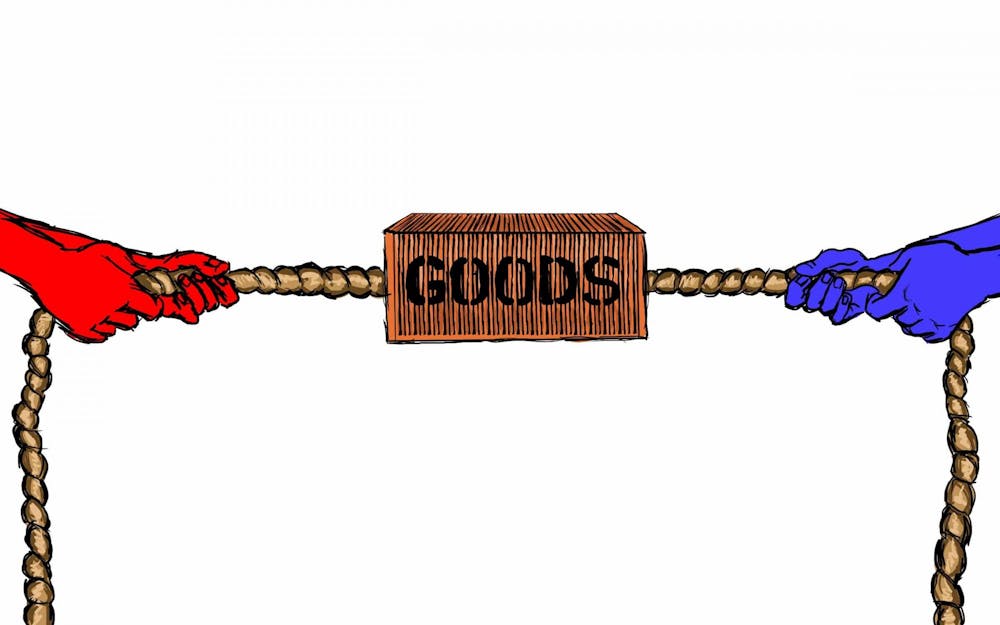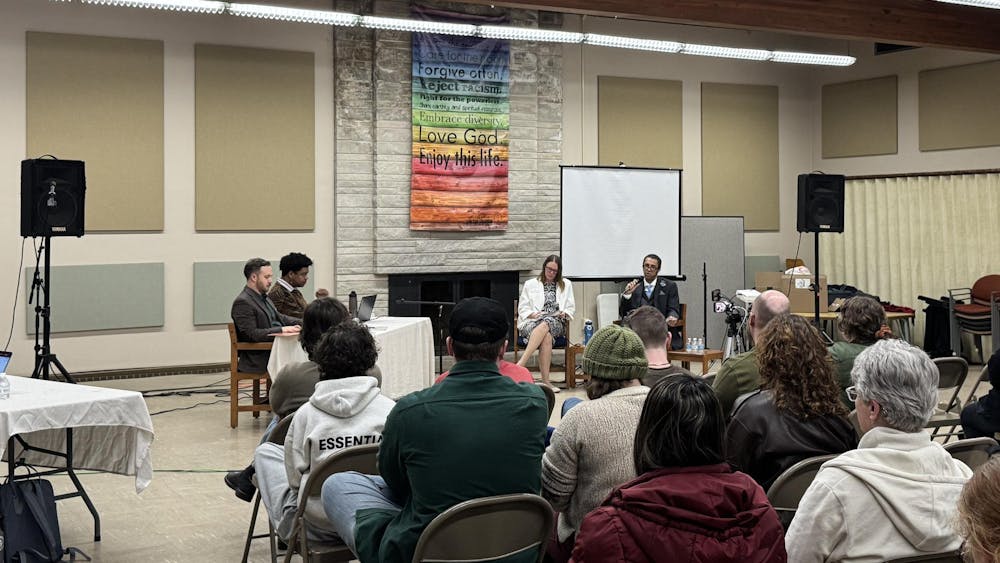Economic sanctions have become more commonplace in the realm of international relations over the last half century. These are financial and commercial penalties imposed by one or more countries upon other countries for various political or economic purposes.
They offer an alternative to traditional military tactics to incentivize "good behavior" or actions that would be welcomed by other countries. Instances like the Obama administration’s sanctions against Russia for the 2014 invasion of Crimea or George W. Bush’s sanctions imposed on Syria serve as good examples for the scenarios where they are typically used.
Using economic sanctions has been steadily increasing over the past few decades in the U.S. and in other parts of the world. And in an increasingly globalized world, they provide a diplomatic alternative to traditional warfare. Given this context and depending how the current war in Ukraine will resolve, these types of sanctions could virtually replace global conflict in the future.
This depends on the outcome of the current conflict in Ukraine. The U.S., G7 nations and the E.U. have all employed economic and financial sanctions against Russia, barring them from foreign investment and international financial transactions to dissuade them from continuing their onslaught on Ukrainian people.
Related: [OPINION: We have a gross misunderstanding of the degree of wealth inequality in the U.S.]
For the most part, this is the first time the world has sanctioned a country highly integrated in the global economy, so the potential outcome is murky in determining whether these will encourage Russia to actually cease fire. One thing we can know for sure is that the sanctions are doing real damage to the Russian economy.
IU Professor Michael De Groot detailed some of the consequences of these sanctions and what Russia's options are. In this year alone, U.S. estimates are around a 20% contraction of the overall Russian economy and interest rates potentially soaring into double digits, he said.
"It's gonna bite hard,” De Groot said. “There's just no way around it."
But that doesn't mean Russia has no options to mitigate these effects. It is entirely possible that Russia will attempt to substitute its normal imports with domestically produced goods and services, De Groot said. This, in turn, would create jobs and opportunities for the Russian people and improve the state of their economy.
Another alternative would be to turn to the Eurasian Economic Union — a coalition comprised of Armenia, Belarus, Kazakhstan, Kyrgyzstan and Russia — for economic relief. However, the aid these nations would be able to provide wouldn't be substantive enough to combat the damage done to Russia's economy, and the substituted goods produced domestically would be far inferior in quality, he said.
"The longer this goes, the more deformed and behind Russia is going to find itself," De Groot said.
If Russia continues its invasion of Ukraine, it will continue to see increasing sanctions against its economy and find itself shut out of the international community and global economy.
The country's only major export would be natural gas, and in a world that's turning to more renewable energy sources, it would have few alternatives to offer globally in order to build its wealth and financial standing.
This is the state of play now. With all of the treaties, agreements and intercontinental coalitions of this globalized world, traditional warfare is now the last resort for many countries. If you do something the world doesn't agree with, you'll pay for it — literally.
Sean Gilley (he/him) is a senior studying political science and economics with a certificate in informatics.






